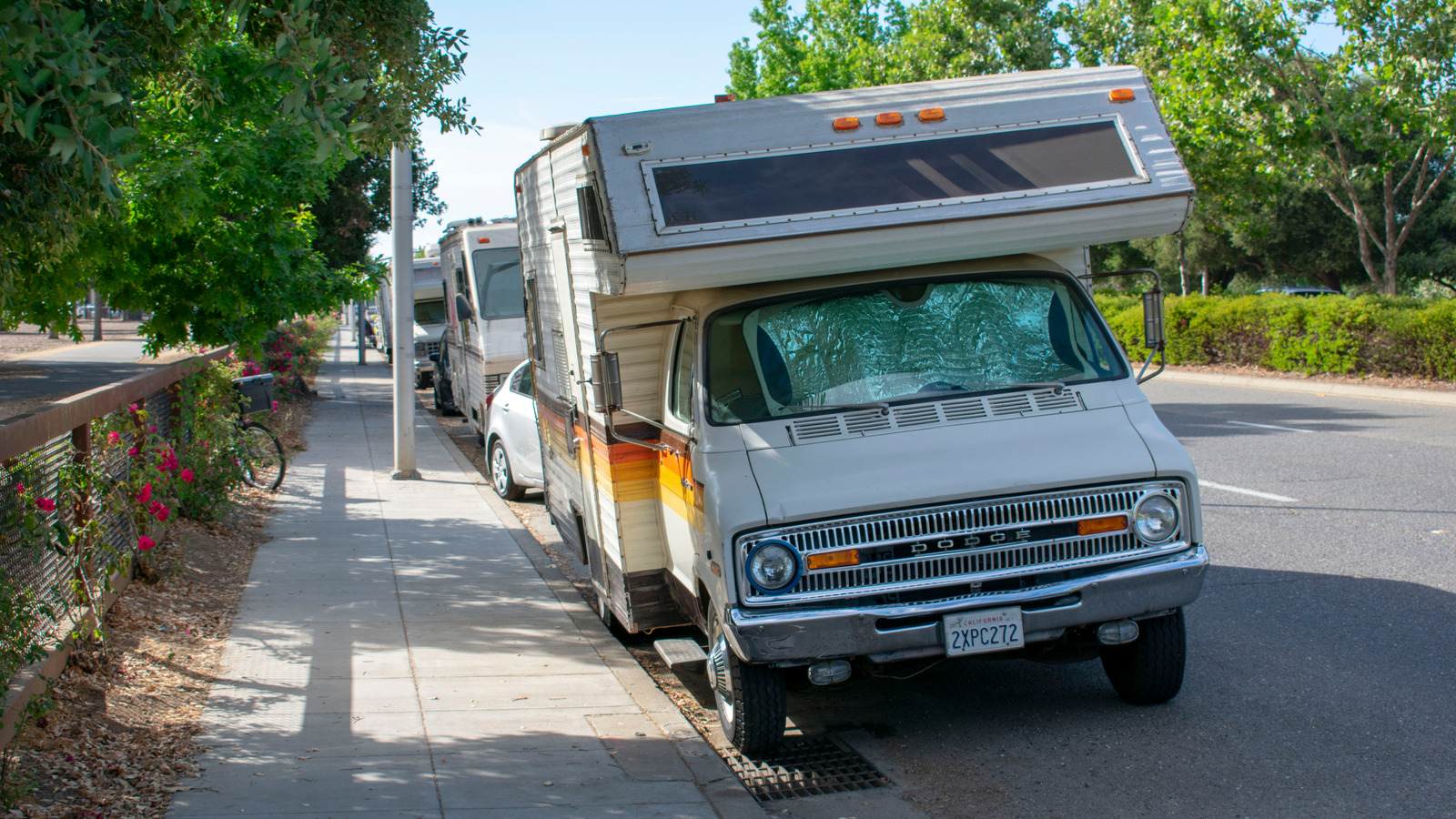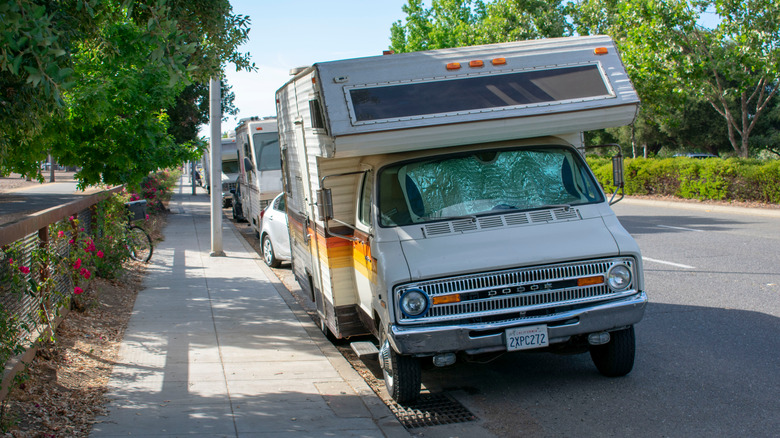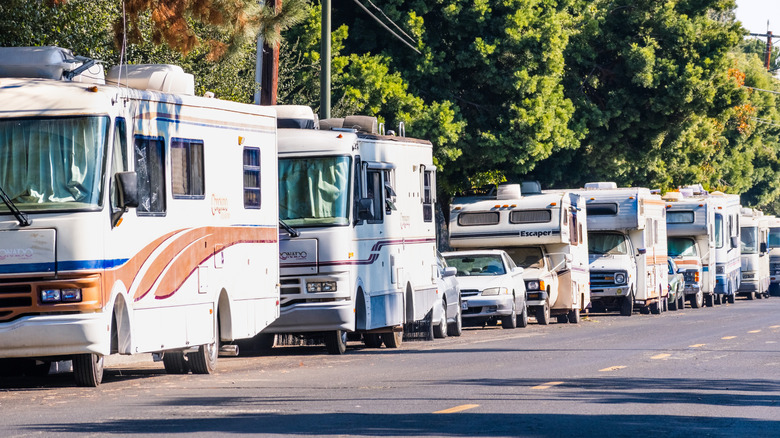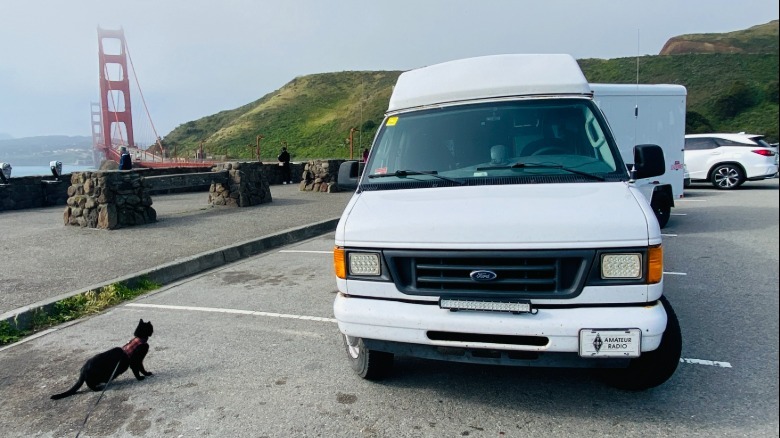New street parking restrictions in San Francisco have vehicle dwellers scrambling to find safe, legal places to park. As of November 1, large vehicles, including RVs, will only be allowed to park for up to two hours before they must be moved, reports ABC 7 News. While finding legal overnight parking is always a concern for those who live on wheels, the two-hour limit is effective day and night. This causes major disruption to people living in vehicles, who must constantly relocate them while trying to live, work, and sleep once the law takes effect.
“Starting in November, large vehicles over 22 feet long or 7 feet tall (RVs, trailers, large vans) will have a new 2-hour parking limit,” says San Francisco’s website dedicated to the Large Vehicle Program. That encompasses not only obvious RVs, but also large cargo trailers and camper vans. I guess I’ll have to park outside the city and ride my motorcycle into town the next time I visit, because my camper van is tall enough to fall under this restriction.
The city is offering Large Vehicle Refuge Permits to certain long-term San Francisco vehicle dwellers, exempting them from the new law for the first six months while they try to find alternative housing. Recipients must comply with all other parking laws, including street cleaning parking bans and existing residential parking time limits. They must also keep the area around their rigs clean, refrain from excessive noise, and have no open fires, which is good vehicle dweller etiquette, regardless of where you are. Recipients must also maintain contact with the city’s case management services and accept housing if and when it is offered to them.
Making it illegal doesn’t make it go away
There are holes in this well-meaning policy big enough to drive a Class A RV through. The people initially eligible for Large Vehicle Refuge Permits were determined by a sweep of the city on May 31, which identified 451 eligible vehicles according to Mission Local. But many people say they were overlooked during this one-time count. While city officials claim to have surveyed “every inch” of the city, 94 people filed appeals, of which 78 were granted as of October 28. Applicants must provide specific forms of documentation that they and their vehicles were in San Francisco between January 1 and May 31, 2025, including registrations, insurance agreements, vehicle purchase or repair receipts, and even parking tickets or towing receipts. Some vehicle dwellers are unable to provide such documentation, making them ineligible for an extension even if they’ve been living and working in the city for years.
Another issue is that the housing the city offers may not be suitable for them, according to the National Vehicle Residency Collective. Some, including the elderly or LGBTQ folks, don’t feel safe in a communal shelter. Others fear their personal possessions may be stolen, which in some cases is everything they own. Still others don’t want to be separated from their spouse, partner, child, or pet. Even those who qualify for a Large Vehicle Refuge Permit risk having it canceled if they refuse services, even if such services don’t work for them.
The elephant in the room, however, is that housing has simply gotten too expensive, especially in the San Francisco area. The average home there costs about $1.5 million, reports NBC Bay Area, yet the average time on the market is just 19 days, compared to the 50-day national average. According to Zillow, the average rental price in San Francisco is $3,669, which is more than some people make in an entire month. While some choose to live in vehicles to have adventures and save money, many are being forced into it these days. A $610 monthly RV payment is less than $1,000 for a single room. Making living in a large vehicle impossible due to strict parking restrictions doesn’t solve the problem of unaffordable housing.





